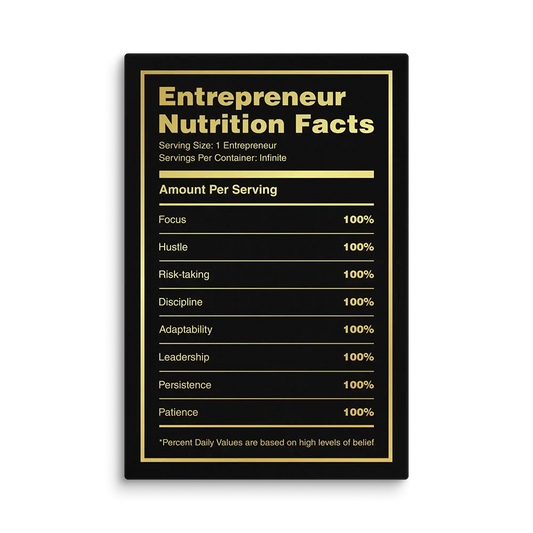
How Can I Get Motivated to Study? Cheat Sheet for 2025
Share
Not feeling the motivation to open your textbooks and get into study sessions? You are not the only one in this battle against procrastination and mental resistance. The trick to long-term motivation in studying is to realize that it is not a process of waitingfor inspiration, but setting up structures that develop the habit of studying.
The most effective students do not depend on bursts of enthusiasm. Rather, they develop frameworks that make learning not a daunting process, but a sequence of manageable steps. Build up long-term study habits that will support you even during the most difficult academic times.
Quick Guide for Motivation Boost
Staying motivated is hard, especially when exam stress is mounting. Here are a few simple things you can do right now:
- Write down your next step: Don’t think about the whole chapter. Just note the very first thing you need to do, like “open the textbook to page 20.”
- Start with an easy win: Pick the simplest topic or question. Finishing something small gives you confidence to keep going and maintains motivation.
- Set a 10-minute timer: Commit to studying for only ten minutes. Most of the time, you’ll want to keep going once you start.
- Put your goal where you can see it: A clear note on your desk saying “Finish Chapter 3 today” can keep you focused.
- Look at something inspiring: A motivational quote or motivational wall art like our Stay Humble canvas can remind you why you started.
Why is It So Hard for Me to Study?
Let’s figure out why it seems impossible sometimes before we dive into solutions. And believe me, it's not because you're lazy. There are real reasons:
- Too many distractions: Phones, social networks, and notifications distract you.
- Lack of clarity: Your brain does not want to start when the work feels overwhelming.
- Low energy: Sleep deprivation, lack of food, and lack of exercise deplete motivation.
- Negative mindset: Having thoughts of being bad at something, or that it is too hard, kills confidence.
All these factors contribute to procrastination, stress, and burnout. For example, you get distracted by your phone and end up in a scroll-fest. After 3 hours, your brain starts buzzing and you still haven't covered a single topic. You feel overwhelmed and decide to start fresh after a nap.
Unfortunately, you wake up groggy and check your phone again. The cycle repeats, as you jump from one distraction to another. By the end of it all, you've spent days without accomplishing anything.
Guide to Get Motivated to Study in 2025
Fortunately, there is a tried and tested way study effectively while maintaining motivation. Here’s your motivation roadmap for this study season:
1. Identify Your Tasks: The Big Picture and the Brushstrokes
Your brain will look for distractions when it doesn't know the end-goal. I've seen thousands of students winging study sessions like a friday night hangout. It leads to stress, lack of motivation, and a severe lack of direction.
Fortunately, you can circumvent this issue easily by identifying your tasks. Ask yourself:
- What subject am I focusing on?
- What chapters or topics matter most?
Pin your exam schedule and think about the subjects of topics that are hard to understand. Alternatively, you can prioritize subjects based on dates. For example, create a study plan for the mathematics exam if its first on the schedule.
2. Create Subtasks: One Hill at a Time
The human brain seeks pleasure, which is why it freezes the moment it things about "2 chapters per day." Breaking tasks into smaller subtasks reduces burnout and improves focus. Your brain doesn't look for distractions and you stay focused more easily.
 For example, if your task is "1 Chapter Per Day" break it down into:
For example, if your task is "1 Chapter Per Day" break it down into:
- 15 minutes of skimming.
- 40 minutes of reading and note taking.
- 30 minutes of understanding and highlighting difficult concepts.
- 40 minutes for detailed dives into complex topics.
- 20 minutes of self examination.
By doing this, you distribute the task into smaller manageable chunks. You trick your brain into staying motivated, while managing stress. You can apply to this method to everyday tasks, like cleaning, working, or exercise.
3. Find a Quiet Place: Distraction-Free Study Environment
Your environment shapes your focus, motivation, and academic success. A 2023 reserach paper found strong correlation between academic focus and environment. The researchers subjected students from different subjects like Physics, Chemistry, Mathematics, and Human Sciences to different environments.
The research concluded that high noise levels had a negative impact on focus, memory, and academic performance. Extreme temperatures, untidy study areas, and elevated noise levels consistently reduced focus. A distraction free environment is crucial for every student.
Here are a few tips to remove distratctions:
- Find a low-noise study space (room, library, empty cafe)
- Clean your environment, remove clutter, and distract
- Turn off of your phone or keep it in a hard to reach place
- Drink a glass of water and eat before sitting down to study
Remove every obstacle or pleasure that your brain would want while you're studying. Keep a to do list on your study space and promise yourself that you'll finish it. Do not leave your desk until you finish everything and I promise, you'll live a happier life.
4. Surround Yourself With Motivation: Growth Mindset
You won’t accomplish anything, when you think you can't do it. Start replacing “I’m bad at this” with “I’m learning this.” Surround yourself with motivation and develop your mindset to have indomitable focus.
Write positive reminders on sticky notes to remember your goals and objectives. Decorate your room with inspirational art pieces to create a study space that pushes you forward. Waking up to a simple quote that resonates with your ideology makes your learning journey much easier.
Another good way to elevate your focus is through study groups. According to research published in BMC Psychology, positive peer interactions can improve academic success, focus, and performance. A study buddy helps students stick to study routines and develops growth mindset.
5. Use Different Studying Techniques: Pomodoro Method and More
Studying for hours without a break doesn’t work. Your feel tired, experience a burnout, and start stressing out. That’s why the Pomodoro Technique is so popular:
- Study for 25 minutes.
- Take a 5-minute break.
- After 4 sessions, take a 20-minute break.
Regular breaks maintain energy levels and focus over long hours. Unfortunately, this alone isn't enough. According to a 2023 report in the NIH, young adults have an average attention span of 76 seconds.
Use mindfulness practices to keep your goals at the forefront of your mind. You can also use several strategies like:
- Active recall: Test yourself instead of just rereading.
- Mind maps: Draw connections between ideas.
- Teach it: Explain the topic to someone else.
These will help you stay motivated and reduce stress.
Nutrition, Rest, and Environment: Motivation Maker or Breaker
A broken body will only invite despair and tardiness. You should be fresh and well rested to stay motivated during every study session. Here are some self care tips for a boost in motivation:
Good Nutrition and Hydration
Skipping meals or living on junk food kills focus, disrupts hormones, and destroys motivation. Eat balanced meals with protein, whole grains, and veggies. It will give you the energy to breeze through long study sessions.
According to 2019 research report, mild dehydration can impair cognitive functions like memory, focus, and problem-solving. Always stay hydrated and keep a flask of water or electrolyte juice on your desk.
Rest and Recovery
All-nighters may feel productive, but they damage memory. According to UCLA Health, all-nighters and lack of sleep can hinder decision-making, memory, and focus. Consistent all-nighters can also damage your long-term memory and mental health.
Sleep plays a crucial role in removing toxins and refreshing your brain. Without sleep, you accrue mental and physical debt that takes weeks to pay off. Please sleep at least 7 hours for the best experience.
Environmental Factors
Temperature, lighting, and noise matter. Here are some research backed facts for students:
- High temperatures have a negative impact on cognitive function. (Temperature & Cognition, 2025)
- Dark or unlit rooms reduce focus and motivation. (Emotional Impact of Interior Lighting, 2023)
- Poorly ventilated rooms reduce cognitive functions (Air Quality & Cognition, 2022)
Turn Daily Motivation into Discipline
Motivation gets you started, while discipline keeps you going. Here’s how you turn motivation to discipline:
- Create a study schedule and stick to it.
- Set realistic goals that you can achieve in a given time.
- Take short breaks between long periods of studying.
- Celebrate completing tasks with a snack or walk.
- Track progress in a notebook or digital app like Habitica.
And remember, it's completely normal to not be 100% motivated everyday. The important bit is to improve at least 0.1% per day. After a month, it will turn into a reinforced habit and everything will feel natural.
How to Avoid Procrastination While Studying?
Procrastination is motivation’s biggest enemy. Beat it with these tips:
- Start small: Open the book and read one page. Just starting kills the fear.
- Block distractions: Use apps to block social media during study hours.
- Set a timer: Commit to 10 minutes. Often, you’ll keep going after that.
FAQs on Study Motivation
What is the 50/50 method for studying?
It’s a simple rule: 50% of the time for learning, 50% for self-testing. Testing yourself improves memory better than just reading.
What is the 80/20 rule studying method?
Focus on the 20% of topics that give 80% of the results. Prioritize key chapters that matter most for exams.
Why does my brain get tired so easily?
Your brain consumes about 20% of your body's energy, and intense mental work quickly depletes glucose and neurotransmitters, leading to mental fatigue that requires rest and proper nutrition to recover.
Bottom Line on How to Get Motivated to Study
Motivation doesn’t come from nowhere. It comes from action. Start small, set clear goals, and stick to your regimen. Pace yourself to avoid burnout and start studying.
If you want a study corner that pushes you to keep going, try adding visual motivation. You can check out motivational wall art to create a positive environment every day. Order your favorite wall art today and stay motivated for every goal.




